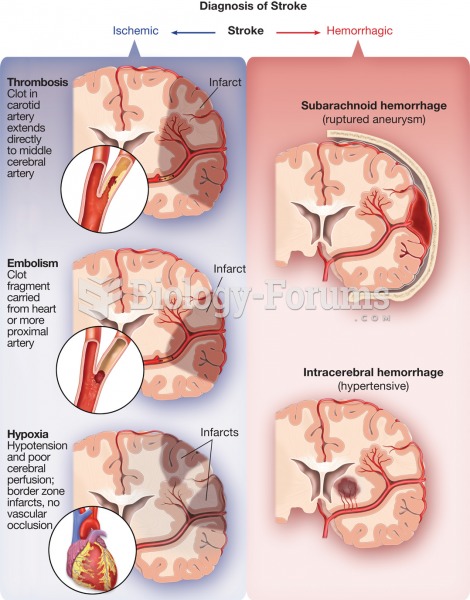|
|
|
About 100 new prescription or over-the-counter drugs come into the U.S. market every year.
About 60% of newborn infants in the United States are jaundiced; that is, they look yellow. Kernicterus is a form of brain damage caused by excessive jaundice. When babies begin to be affected by excessive jaundice and begin to have brain damage, they become excessively lethargic.
Ether was used widely for surgeries but became less popular because of its flammability and its tendency to cause vomiting. In England, it was quickly replaced by chloroform, but this agent caused many deaths and lost popularity.
All adverse reactions are commonly charted in red ink in the patient's record and usually are noted on the front of the chart. Failure to follow correct documentation procedures may result in malpractice lawsuits.
More than 34,000 trademarked medication names and more than 10,000 generic medication names are in use in the United States.
 It is important to ask patients what other health care providers they are seeing, such as the dentis
It is important to ask patients what other health care providers they are seeing, such as the dentis
 On March 25, 1911, as scores of young factory girls leaped to their deaths from the eighth, ninth, a
On March 25, 1911, as scores of young factory girls leaped to their deaths from the eighth, ninth, a





